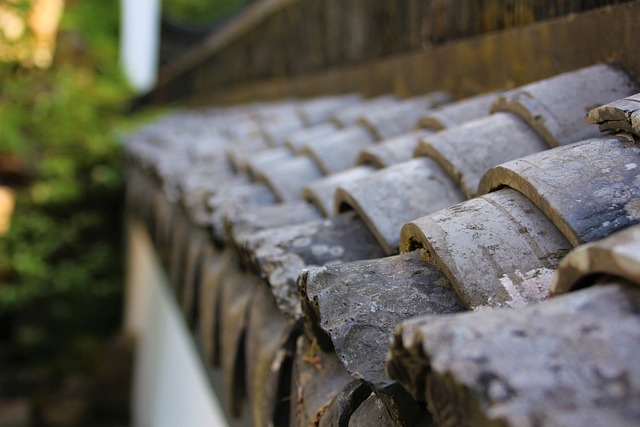Certified roofing contractors are vital for maintaining and enhancing buildings' structural integrity and visual appeal. They possess specialized skills in complex roof designs, high-quality material selection, safety standards adherence, and knowledge of local building codes. Their expertise covers diverse solutions from traditional shingles to modern metal panels, ensuring longevity, energy efficiency, and indoor air quality. Hiring certified contractors offers advantages like expert advice, early issue identification, advanced techniques, compliance, and seamless service. These professionals use versatile tools and materials, solve problems efficiently, and prioritize safety through stringent protocols and PPE. Regular maintenance with their guidance extends roof lifespans, preventing costly repairs.
“Roofing is a crucial aspect of any structure, demanding skilled professionals to ensure durability and safety. This article delves into the significance of experienced roofing technicians, highlighting the role of certified roofing contractors. We explore the essential qualifications and expertise needed, while offering insights into the benefits of hiring seasoned pros. From common skills and tools to safety best practices, this comprehensive guide equips homeowners with knowledge on choosing and maintaining a reliable roof over their heads.”
Understanding the Role of Certified Roofing Contractors

Certified roofing contractors play a pivotal role in ensuring the structural integrity and aesthetic appeal of buildings. Their expertise extends beyond mere installation and repair; they are tasked with comprehending complex roof designs, utilizing high-quality materials, and adhering to safety standards. These professionals are equipped with the knowledge and skills to navigate diverse roofing scenarios, from traditional shingles to modern metal panels.
Their certification is a testament to their proficiency in handling various aspects of roofing, including ventilation systems, flashing, and waterproofing. This ensures that roofs not only withstand the elements but also contribute positively to energy efficiency and indoor air quality. Moreover, certified contractors are well-versed in local building codes and regulations, guaranteeing compliance and peace of mind for property owners.
Qualifications and Expertise: What to Look For

When hiring roofing technicians, it’s crucial to look beyond just a set of skills and assess their overall qualifications and expertise. Certified roofing contractors possess specialized knowledge and training that ensure they can handle various roofing tasks efficiently and safely. Look for individuals who have undergone comprehensive training programs and hold relevant certifications from recognized institutions. These credentials attest to their proficiency in using modern equipment, understanding complex roofing systems, and adhering to industry standards and safety protocols.
Additionally, experienced technicians should demonstrate a broad range of skills, including expert knowledge of different roofing materials, techniques, and the latest trends in roof repair and installation. Their ability to diagnose and solve problems quickly is a significant asset. You can assess their expertise by asking for references or reviewing past projects. Reputable certified roofing contractors are often proud of their work history and will happily share testimonials from satisfied clients.
The Benefits of Hiring Experienced Technicians

Hiring experienced roofing technicians brings a host of benefits that go beyond just ensuring your roof is fixed. These certified roofing contractors come armed with specialized knowledge and skills, allowing them to offer expert advice tailored to your specific roofing needs. Their years in the trade equip them to identify subtle issues that might be overlooked by amateurs, preventing what could turn into costly repairs down the line.
Moreover, seasoned technicians utilize advanced techniques and top-quality materials, ensuring long-lasting results. They understand local building codes and regulations, streamlining the entire process and saving you time and potential legal headaches. Their professionalism translates to a seamless experience from start to finish, leaving your home or property in safe and reliable hands.
Common Skills and Tools Used by Professional Roofers

Professional roofers possess a diverse set of skills and utilize specialized tools to ensure every roofing job is done efficiently and safely. Common among certified roofing contractors are an expert understanding of various roofing materials, from asphalt shingles to metal panels, enabling them to select the most suitable option for each project. They are adept at reading blueprints, interpreting building codes, and following safety regulations, crucial aspects in the structural integrity and legal compliance of any roofing installation or repair.
On the toolside, roofers often carry a range of equipment including ladders, harnesses, screwdrivers, hammers, saws, and specialized machinery like roof cutters and heat guns. These tools facilitate tasks such as cutting and shaping materials, securing shingles or tiles, and removing old roofs. Skilled professionals also possess excellent problem-solving abilities, enabling them to diagnose issues swiftly and implement effective solutions, maintaining the longevity and aesthetic appeal of structures.
Ensuring Safety: Best Practices for Certified Contractors

Experienced roofing technicians play a vital role in ensuring the safety and integrity of any structure’s most crucial protective layer. For certified roofing contractors, adhering to strict safety protocols is not just a best practice—it’s non-negotiable. These professionals are well-versed in navigating the unique challenges that come with working at heights, recognizing potential hazards, and implementing preventive measures.
Using appropriate personal protective equipment (PPE), such as hard hats, fall arrest systems, and high-visibility clothing, is standard operating procedure for certified roofing contractors. They also follow meticulous work strategies to minimize risks, including regular inspections of tools and gear, proper use and maintenance of ladders and scaffolds, and consistent communication during complex jobs. These safety-first practices not only safeguard the technicians but also ensure the longevity and reliability of the roofs they install or repair.
Maintaining Your Roof: Tips from Industry Experts

Roofs are integral to any structure’s integrity and protection, making regular maintenance a non-negotiable for homeowners. Certified roofing contractors emphasize that preventative care is key to extending the lifespan of your roof. Regular inspections are crucial to identify potential issues early on, such as loose shingles, damaged flashing, or signs of water intrusion. Staying proactive can prevent costly repairs down the line.
When it comes to maintenance, experts suggest a combination of DIY tasks and professional services. Homeowners can start by clearing gutters of debris, ensuring proper drainage, and inspecting their roof for any visible damage after severe weather events. However, more intricate tasks like replacing missing or damaged shingles, repairing or replacing flashing, or re-sealing the roof should be left to certified roofing contractors who possess the specialized tools and expertise to tackle these jobs safely and effectively.
